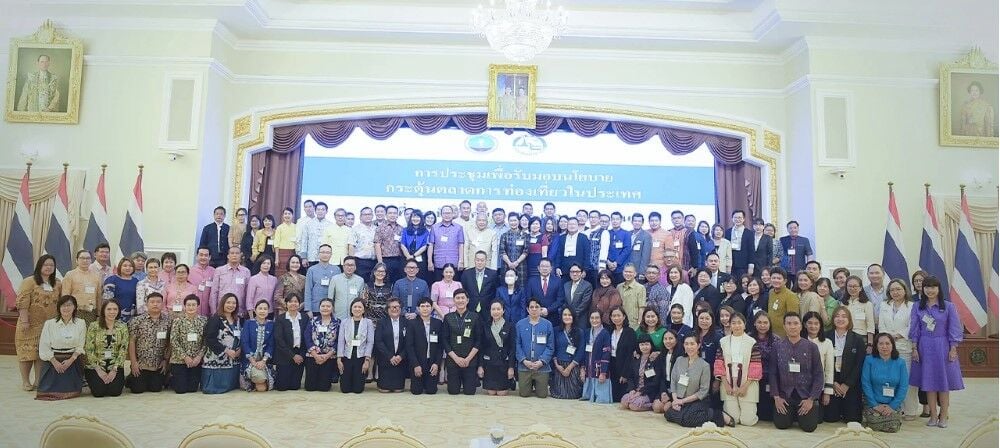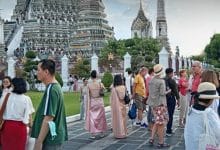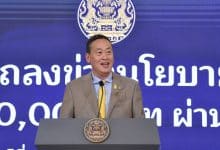Thai PM unleashes bold tourism overhaul: Second-tier provinces take centre stage

Prime Minister Srettha Thavisin shook the foundations of Thailand‘s tourism strategy, revealing a radical shift during a high-stakes meeting at Government House.
The Thai premier, flanked by Tourism and Sports Minister Sudawan Wangsuphakijkosol and Tourism Authority of Thailand (TAT) Chief Thapanee Kiatphaibool, unveiled his masterplan to propel the nation into a perpetual high-season destination, leaving traditional hotspots like Chiang Mai and Phuket in the dust.
The Bangkok-born prime minister urged collaboration to turn hidden gems into tourism gold.
“We must stimulate spending in second-tier provinces by promoting their strong points of attraction and create new landmarks.”
PM Srettha aimed to transform elusive sightseeing spots into Thailand’s soft power, a magnet for globe-trotters seeking untapped wonders.
The Thai prime minister spared no punches, instructing the TAT governor to globe-trot at international tourism events, luring foreign visitors with the allure of Thailand’s lesser-known treasures. His vision? Senior TAT officials should be dispatched frequently to secondary provinces, unearthing cultural and tourism gems.
The 61 year old prime minister implored foreign tourists to spend more and stay longer. He apologised to the TAT governor for the public scolding, ensuring her his unwavering support and advocating for transparent communication.
Plan details
In a behind-the-scenes tête-à-tête, the Thai PM, Tourism and Sports Minister Sudawan, and TAT governor hashed out the details of this groundbreaking tourism overhaul. Later, Sudawan disclosed plans to seek a whopping 600-million-baht fund from the Cabinet to amplify foreign arrivals during the high season, reported The Nation.
Sudawan hinted at an audacious strategy—proposing a Cabinet consideration of promoting second-tier provinces like Nong Bua Lamphu and Kanchanaburi. The ministry, aligning with the premier’s directive, pledged to conjure up innovative activities enticing tourists to explore border-adjacent provinces, an unprecedented move to diversify the tourism portfolio.
With an eye on boosting the average expenditure from the current 43,000 baht per head per trip, the ministry seeks to redefine Thailand’s allure. Despite a hiccup in Chinese arrivals, Sudawan exuded optimism, envisioning a surge from other countries. She proposed an extension for tourists to stay beyond the conventional 30-day limit.
The government, in a bid to resuscitate the tourism industry, initially granted a temporary 30-day stay for Chinese, Indian, and Kazakhstan nationals in September. Now, extending the olive branch to Taiwan and Russian nationals, the scheme originally slated to conclude in February 2024 has been granted a lifeline until May 2024.
Latest Thailand News
Follow The Thaiger on Google News:


























